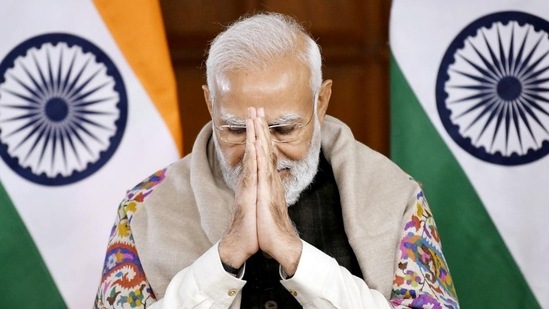
Responding to a media query about a BBC documentary on Prime Minister Narendra Modi that has sparked controversy since its release, US State Department spokesperson Ned Price said on Monday, “I’m not familiar with the documentary you’re referring to, but I am very familiar with the shared values that enact the United States and India as two thriving and vibrant democracies.”
Price stated during a news conference on Monday (local time) that various components strengthen the US’ global strategic partnership with India, including political, economic, and particularly strong people-to-people ties.
He described India’s democracy as “vibrant,” and said, “we look to everything that ties us together, and we look to reinforce all of those elements that tie us together,” as he emphasized the US and India’s diplomatic ties.
He also emphasized that the US-India connection is extraordinarily deep and that both countries share the ideals that are fundamental to American and Indian democracy.
“I’m not aware of this documentary that you point to, but I will say broadly, is that there are several elements that undergird the global strategic partnership that we have with our Indian partners. There are close political ties, there are economic ties, and there are exceptionally deep people-to-people ties between the United States and India. But one of those additional elements are the values that we share the values that are common to American democracy and Indian democracy,” he added.
Rishi Sunak, the UK Prime Minister, distanced himself from the BBC documentary series
Last week, Rishi Sunak, the UK Prime Minister, defended Prime Minister Narendra Modi and distanced himself from the BBC documentary series, stating he “doesn’t agree with the characterization” of his Indian counterpart.
Mr. Sunak made these remarks in response to a contentious documentary brought in the British Parliament by Pakistan-origin MP Imran Hussain.
“The UK government’s position on this has been clear and longstanding and hasn’t changed, of course, we don’t tolerate persecution where it appears anywhere but I am not sure I agree at all with the characterization that the honorable gentleman has put forward to,” Mr. Sunak said while responding to Hussain’s question on the BBC report.
The BBC, the UK’s national broadcaster, ran a two-part program criticizing PM Narendra Modi’s stint as Gujarat Chief Minister during the 2002 Gujarat riots. The documentary provoked uproar and was pulled from several platforms.
MEA spokeswoman said at a weekly press conference in New Delhi
“We believe this is a propaganda work,” Arindam Bagchi remarked. This has no objectivity. This is biased. Do note that this hasn’t been screened in India.
Alluding to alleged allegations made by former UK Secretary Jack Straw in the documentary series, Mr. Bagchi remarked “He (Jack Straw) seems to be referring to some internal UK report. How do I have access to that? It’s a 20-year-old report. Why would we jump on it now? Just because Jack Straw says it how do they lend it that much legitimacy.”
“I heard words like inquiry and investigations. There is a reason why we use the colonial mindset. We don’t use words loosely. What inquiry they were diplomats there…investigation, are they ruling the country?” Mr. Bagchi asked.
US Department officials stated that the US has long advocated for South Asian regional stability
Furthermore, the US Department official stated that the US has long advocated for South Asian regional stability and that its partnerships with India and Pakistan stand on their own.
He went on to say that the pace and breadth of conversation between India and Pakistan are clearly up to the two countries.
‘We’ve long called for regional stability in the South Asian region. Our relationships with India & Pakistan stand on their own and we don’t see them as zero-sum. But pace, scope & character of any dialogue between India & Pakistan is a matter for the two countries,” Price said during the briefing. (https://uniforumtz.com)
